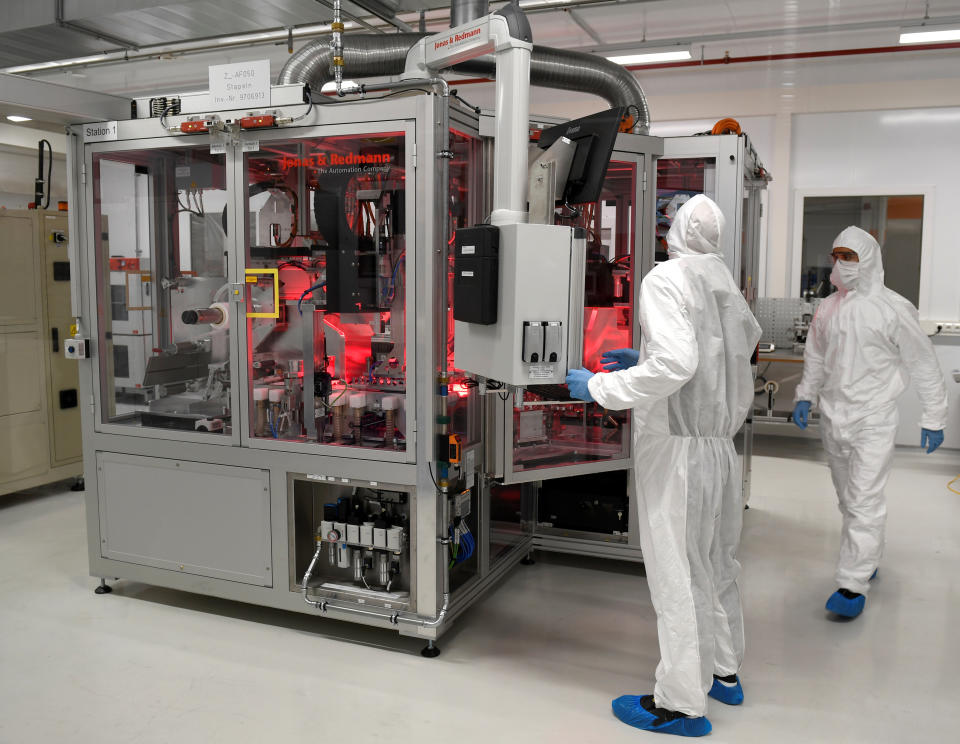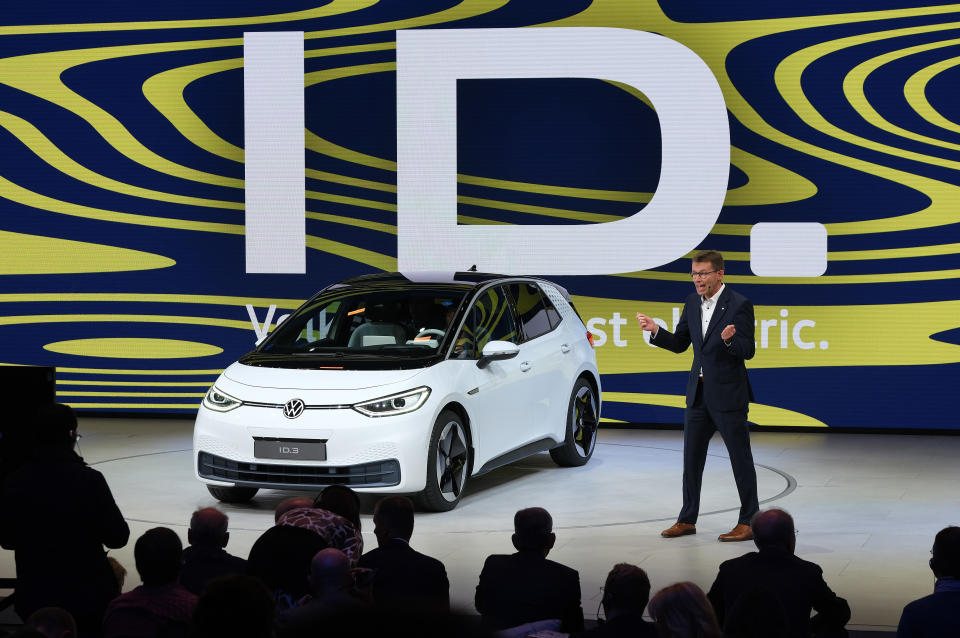Volkswagen begins pilot production of battery cells for its electric-car push

Volkswagen took the first step towards producing its own lithium-ion batteries on Monday as it goes all out to become the leader in electromobility.
The official launch of Volkswagen’s new battery-cell development centre in Salzgitter, Germany, comes two weeks after the world’s largest carmaker premiered its new ID3 electric hatchback at Frankfurt and vowed to be a leader in e-mobility.
VW Group board member Stefan Sommer said in a statement that the company was “moving forward with building up battery cell knowhow in Germany.”
VW said this first phase will cost more than €100m (£88.5m, $110m) and encompass the developing, testing and manufacturing of lithium-ion batteries. It also plans to start a battery recycling pilot in 2020.
The Wolfsburg-headquartered company announced in June that it would invest €900m into a joint venture with Sweden’s Northvolt to open a lithium-ion battery factory in Salzgitter in 2023.
The dominance of battery giants like Contemporary Amperex Technology (CATL) in China and Samsung and LG in South Korea is a growing worry for European car companies, as they begin ramping up electric car production. Not only must they spend billions buying in the batteries, but they face the insecurity of prices going up.
Europe has been lagging far behind in battery manufacturing. Germany’s biggest automotive supplier Bosch said in February that it was not going into battery-cell manufacturing due to the “high risk” of investment.
By producing its own batteries, Volkswagen can also make cost savings by supplying its brands, in the same way it does with engines and other components, and will do with its new MEB modular electric-car platform.
READ MORE: Volkswagen rebrands and wheels out its new mass-market car

Earlier this year, Germany earmarked €1bn for subsidies to encourage companies to develop domestic battery cell production in Germany, and VW and BMW were among the applicants. “Germany and Europe need to develop and build competitive, innovative and environmentally sustainable battery cells,” economy minister Peter Altmaier said.
“Today’s commissioning of the pilot line is an important step on the road to building a gigafactory at the Salzgitter site,” Frank Blome, head of the VW Center of Excellence for Battery Cells, said. “The experience gained will also contribute to mastering the entire value chain for lithium-ion batteries – from raw materials through production to recycling.”
That’s not to say China’s CATL is in danger of being frozen out of the German car market. It got approval to start building a huge battery cell factory in Thuringia last summer, scheduled for completion in 2021. Daimler already has a multibillion-euro battery contract with CATL, and BMW indicated it would buy €4bn worth of battery cells from the new factory.

 Yahoo Finance
Yahoo Finance 